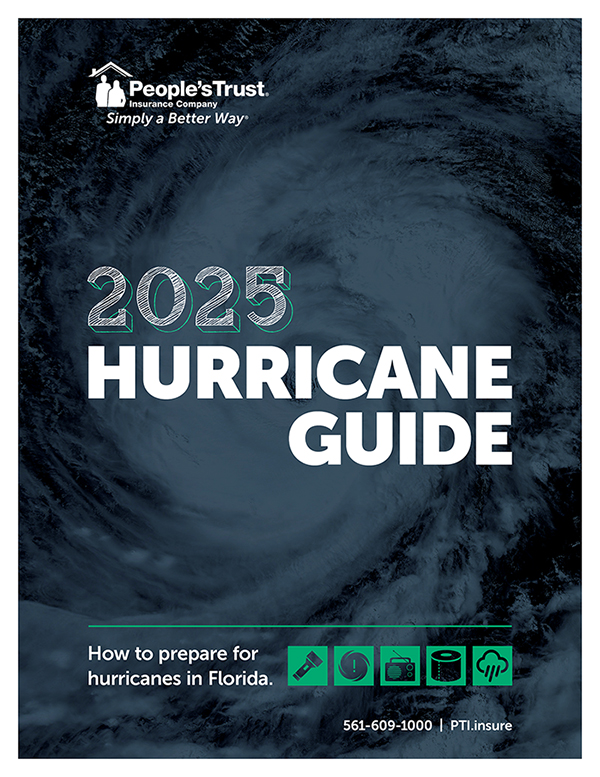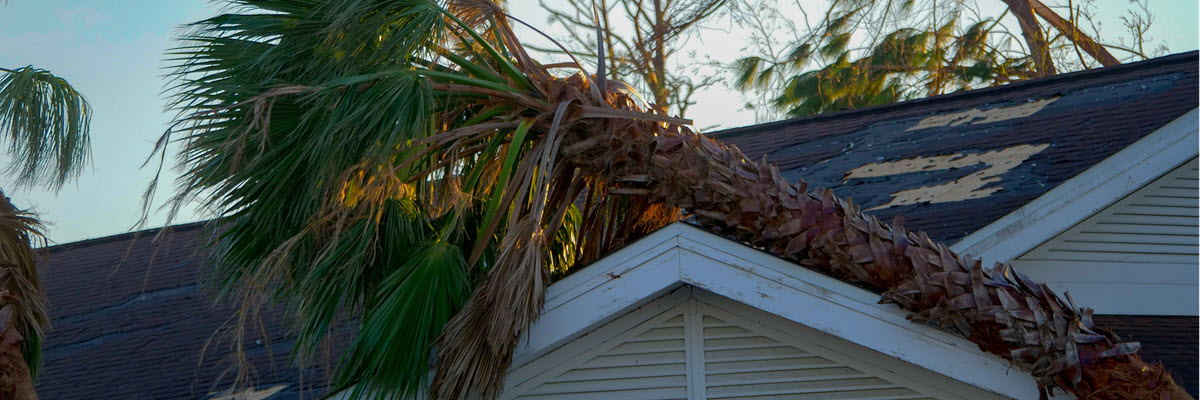Hurricane Hub
Tips and insights to help you handle those inevitable Florida hurricanes.
Tips for Filing an Insurance Claim After a Hurricane
The aftermath of a hurricane is something we all hope we never have to experience. However, if your home is damaged by a storm, knowing the steps to take if you need to file an insurance claim can help ease some of your uncertainty and anxiety as you begin to recover.
We understand the challenges you may be facing, which is why we’ve compiled our top hurricane insurance claims tips to help make filing a claim a little smoother.
Tip #1: Contact your insurer as soon as possible (while staying safe).
Hurricanes are infamous for leaving behind damage and huge messes. Even if you’re handy around the house, things like fallen branches, exposed wires, and wet surfaces can make many repair jobs far more dangerous than they look. Be sure to make safety your #1 priority after a storm.
Instead of rolling up your sleeves immediately, it’s best to contact your insurer as soon as possible if you notice any damage to your property after the storm has passed. They will work with you to come up with a repair plan that complies with your insurance policy and safely gets your home back to working order. They can also get the ball rolling on reimbursing you for any losses like electronics, furniture, appliances, or other property that needs to be replaced because of storm damage.
While you likely have a lot on your plate post-hurricane, make sure to stay in communication with your insurer. Making sure they have all the information they need will streamline your claims process and help get things back to normal sooner.
Tip #2: Document the losses for your claim.
To aid the claims process, document all the damage to your property — the more details you capture, the better your agent can assist you. It’s important to photograph each damaged item, list its estimated value, approximate date of purchase, and the type of damage sustained
You can further supplement the written descriptions of your property by using your smartphone to take pictures of the damages.
For the best results, take photos of property damage with plenty of light and from as many angles as you can. Stand further back to fit the entire object or or area in the frame, and then move nearer (while keeping your safety in mind) to get close-up shots with identifying details like brand names and model numbers.
All this visual evidence can go a long way toward completing your claim and getting an accurate reimbursement.
Tip #3: Know how your policy handles repairs.
Waiting on insurance claims while your home is in disrepair is difficult for anybody. It’s only natural to want to start putting your home back together as soon as possible. But, did you know that any repairs you make to your home right after a hurricane could affect the outcome of your insurance claim?
Before starting any repairs, talk with your insurer. You might be able to make temporary fixes, like putting a tarp over the roof, but we recommend always checking with your insurer first to confirm it won’t affect your claim. They can help you determine what damages you can patch up now vs. what major repairs should wait until later in the claims process. They can also tell you what benefits your policy may provide, like temporary relocation coverage, that can help make the recovery process easier for your family.
Tip #4: Keep track of receipts and expenses.
By keeping in touch with your insurer, you’ll be able to learn which types of expenses related to your hurricane recovery are covered by your policy. Every policy is different, but you might be surprised to learn that something like a hotel stay is covered if your home is not livable.
Hang on to all your receipts and ask your insurer if any of your expenses can be added to your claim.
Once the storm has passed, the scary part is over. But we know the road to recovery is often long. By staying in touch with your insurer and remembering these tips, you’ll be well on your way to recovering from damage you may have sustained from the hurricane, and weathering what you may face in the future.


